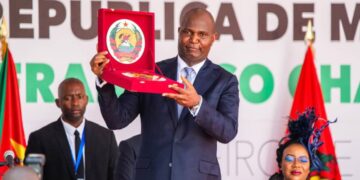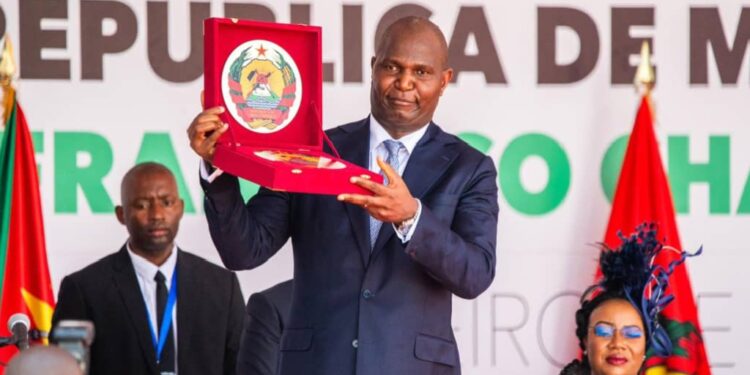By Enyichukwu Enemanna
Mozambique’s president-elect, Daniel Chapo, on Wednesday took the oath of office in front of heavily guarded dignitaries in the capital, Maputo, following weeks of violent demonstrations over the fiercely disputed election results.
Chapo’s victory in the October election extends the 50-year rule of the governing Frelimo party in the gas-rich African nation.
The opposition candidate, Venancio Mondlane, has repeatedly claimed victory, alleging that the elections were rigged. This has sparked unrest that is believed to have killed over 300 people, including security officers.
Taking the oath, Chapo, 48, vowed “to devote all my energies to defending, promoting and consolidating national unity, human rights, democracy, and the well-being of the Mozambican people.”
Before the inauguration, Mondlane had threatened to “paralyse” the new government with daily demonstrations, following his earlier calls for a national strike in the days leading up to the ceremony.
Mondlane, 50, who is popular with the youth, maintains that the October 9 polls were rigged in favour of the Frelimo party, which has governed Mozambique since its independence from Portugal in 1975.
“This regime does not want peace,” Mondlane said in an address on Facebook on Tuesday, adding that his communications team was met witdh bullets on the streets earlier this week.
“We’ll protest every single day. If it means paralysing the country for the entire term, we will paralyse it for the entire term,” he added.
Chapo called for stability on Monday, telling journalists at the national assembly, “We can continue to work and, together, united… develop our country.”
International observers have reported that the election was marred by irregularities, while the EU mission condemned what it called the “unjustified alteration of election results.”
Neighbouring South Africa’s President Cyril Ramaphosa attended the inauguration, while former colonial ruler Portugal sent Foreign Minister Paulo Rangel.
Ahead of the ceremony, Maputo-based political and security risk analyst Johann Smith told AFP that the absence of a large number of foreign heads of state “sends a strong message.”
“Even from a regional point of view, there is a hesitancy to acknowledge or recognise that Chapo won the election,” Smith said.
Security forces blocked roads throughout Maputo and around Independence Square, where the swearing-in took place.
On Monday, the inauguration of parliamentary lawmakers was held amid relative calm.
The streets were deserted, with most shops closed either in protest against the ceremony or out of fear of violence. Military police surrounded the parliament building, and police blocked main roads.
Chapo, who is expected to announce his new government this week, could make concessions by appointing opposition members to ministerial posts to quell the unrest, said Eric Morier-Genoud, an African history professor at Queen’s University Belfast.




































